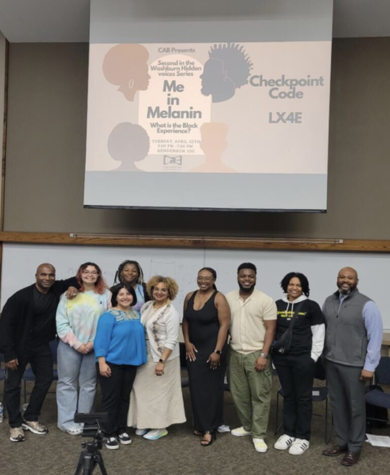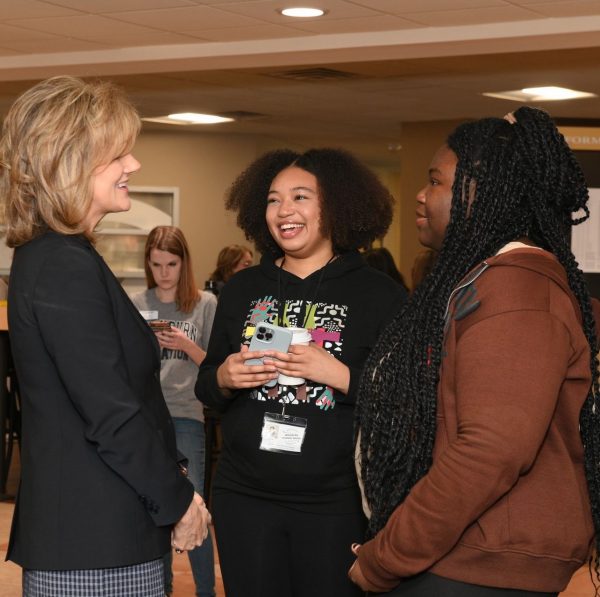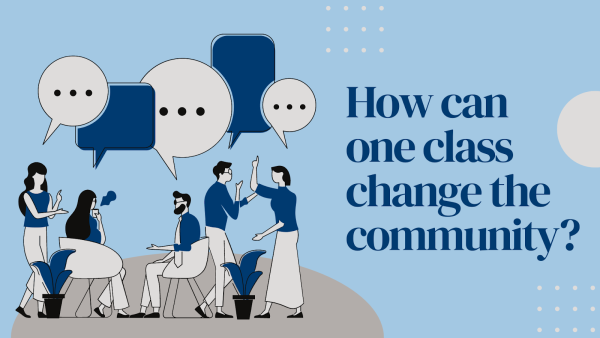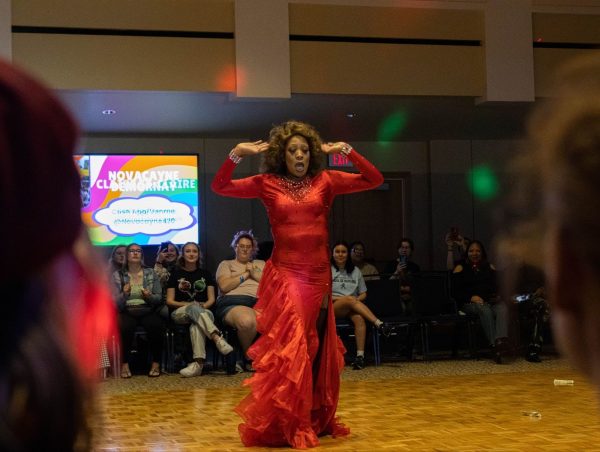CAB presents ‘Me in Melanin’ to discuss the Black experience

On Tuesday, April 24, the Campus Activities Board organized an event where a panel of Topeka community members, Washburn faculty and students discussed their experience of being Black in the United States from 5-7 p.m. at room 100 of the Henderson Learning Resources Center.
Different topics were brought up for discussion, such as African American history, experiences of growing up in the United States, the military, being a Black friend and education. The conversation focused on personal identity rather than cultural identity.
All the members had various views about the term “Black” and what it meant to be referred to as Black.
Jonathan Mcroy, commissioner of the 4th district in Wichita and a member of the Topeka community, spoke about his experiences working as a member of the Kansas African-American Affairs Commission.
“I feel like I am living under the pressure of being Black, because society has certain expectations and stereotypes of Black people,” Mcroy said. “I am juggling carrying the pressure and managing vulnerabilities and triggers while dealing with other people’s expectations.”
Raven Petty, a sophomore triple majoring in forensic science, family and human services and addiction counseling prefers to be called Black American. She shares that whenever someone says the term Black American or talks about African American people, she notices the change in their tone of voice.
The panel had another conversation about African American History and slavery. They discussed the effect it caused on families as well as talking about reparations.
Megan Dorantes, a public administration management major, spoke on how African Americans were brought in illegally through the slave trade when the United States was created and how this resulted in relocation from their communities.
“Black people wonder, ‘Who am I as a person? Do I identify with my homeland? Do I identify with America who does not see me as a part of them?’” Dorantes said.
The panels also talked about how slavery affected their livelihood and how they feel reparations should be handled.
Mcroy shared his experience of how slavery had two different sides in his family as his father was from Augusta, Georgia and his mother immigrated from Jamaica in the 70s.
“Before my father passed on, I was exposed to the black experience in America at a young age,” Mcroy said. “My father talked about how they had to face a lot of problems during the slavery period, what they went through and how they struggled with those problems, whereas my mother had a sense of optimism as an immigrant and said America has opportunities.”
JoAnna Marks, junior political science major shared her thoughts on reparation.
According to Marks, reparations should work as a full revolution and a rewritten Constitution that includes Black people, women and other minorities.
Michelle Sawyer, a former Washburn student, also expressed her opinion about reparations. Sawyer believes that the government needs to go within the justice system and overturn laws that target Black people.
“The Me in Melanin” event was run by the Campus Activities Board as a way for Black students and community members to voice their experiences on what being Black in the United States means and how this has affected their families. CAB also aimed to share the point of view of these members on how these kinds of thoughts, behaviors, and laws can be changed.
Edited by Cee Spiller and Simran Shrestha
Your donation will support the student journalists of Washburn University. Your contribution will allow us to purchase equipment and cover our annual website hosting costs.







